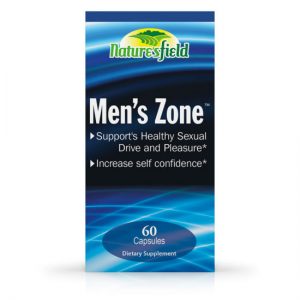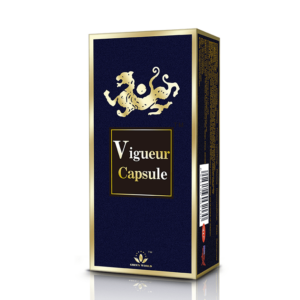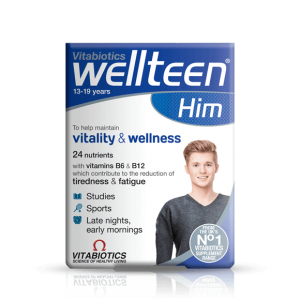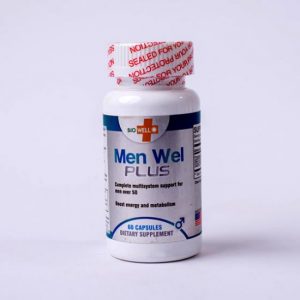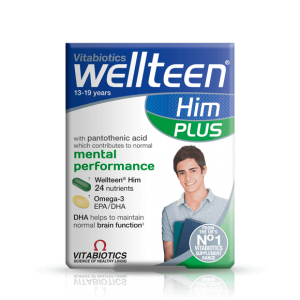Zinc Tablet for Adult: It Supplements Daily Zinc Intake
₦11,970.00
Characteristics and Benefits:
- Essential for optimal physical performance and energy levels;
- For protein synthesis and proper function of red and white blood cells;
- Participates in synthesize or more than 200 metalloprotease and nucleic acid;
- Enhances immunity and accelerates wound healing;
- Supports reproductive system of men and women and helps with infertility.
Green World Zinc Tablet
Zinc Tablet is a trace element involved in hundreds of chemical reactions in human body, which is important for immune function, acid-base balance, digestion, growth and development, skin and hair health, genetic transcription, antioxidant activity and much more.
In adult, zinc deficiency may lead to mental depression, impotence, poor wound healing and acne. In advancing age it could manifest itself in a decline in immunity combined with increased inflammation.
Taking zinc lactate as the key ingredient, Green World Zinc Tablet can supplement daily requirement of zinc for adults and improve the signs caused by zinc deficiency.
Benefits zinc Tablet
- Essential for optimal physical performance and energy levels;
- For protein synthesis and proper function of red and white blood cells;
- Participates in synthesize or more than 200 metalloprotease and nucleic acid;
- Enhances immunity and accelerates wound healing;
- Supports reproductive system of men and women and hlps with infertility.
Suitable for:
- People with insufficient daily intake of zinc
- People with digestive problems and poor stomach acid
- For people taking medications for long time
- People who smoke or take alcohol excessively
- Vegetarians
- Women on the birth control pill or on hormone replacement therapy
- Athletes or people who are physically active
- Children
Recommended Use
- Each bottle contain 1000 mg x 60 tablets
- Recommended For adults.
- Take 2 tablets in a day.
Key Knowledge:
“Zinc is such a critical element in human health that even a small deficiency is a disaster.” Written by researchers. Zinc is so important because it is found in every tissue in the body and directly involved in cell division. It is a powerful antioxidant, helping to prevent cancer, but zinc also is involved in proper endocrine function and the maintenance of ideal hormone levels.
-
Zinc deficiency
Zinc deficiency makes both men and women infertile and causes low libido. Low zinc also exacerbates the effects of stress on the body and accelerates aging.
Zinc deficiency will produce an altered sense of taste leading to cravings of saltier, sweeter food. It can also be indicated by diarrhea, low energy, chronic fatigue, infertility, poor immunity, bad memory, inability to focus. -
For male reproductive health
Zinc is a critical mineral for robust testosterone levels, and the cells of the male prostrate require ten times more zinc than other cells in the body to stay healthy and perform optimally. Zinc deficiency in men impairs testosterone production, puts them at risk for developing prostate cancer, and causes infertility. Inadequate zinc has also been linked to low libido.
-
For Female reproductive health
In women, zinc is involved in the growth process of the oocyte or egg. If women are zinc deficient, the egg won’t mature properly and ovulation will be impeded, causing infertility. Adequate zinc allows women to use estrogen and progesterone efficiently.
-
Enhances immune system
Zinc deficiency profoundly affects the immune system because low zinc produces a direct and rapid decline in T cell function. T cells elevate the body’s immune system when viruses, bacteria, or challenges to health arise. There’s evidence that a need for more zinc may increase with age to counter inflammation, support the immune system, and ensure healthy cell function.
-
Protects cardiovascular system
Zinc is vital to maintain the health of cardiovascular cells and the endothelium. The endothelium is the thin layer of cells that lines the blood vessels and plays a major role in circulation. Low zinc can cause a deficiency in the endothelial barrier, which leads to high cholesterol buildup and inflammation. Cholesterol and inflammation increase your risk of heart disease.
-
Prevents diabetes
Zinc is needed for the healthy function of most hormones, including insulin. Zinc binds to insulin so that insulin is adequately stored in the pancreas and released when glucose enters the blood stream. When zinc concentration falls, there is a reduction in insulin secrection and peripheral insulin sensitivity, which if persistent, will lead to diabetes. A recent study of Spanish school children found a direct relationship between low zinc levels, greater body fat content, and insulin resistance.
-
A powerful antioxidant
Zinc is an excellent antioxidant that gets rid of free radicals which causes damage to cells in the body by bounding with them and neutralizing them. Zinc also targets free radicals that cause inflammation and is especially effective at detoxifying heavy metals from the brain.
-
A powerful detoxifier
The progression of neurodegeneration and Alzheimer’s disease is accelerated by heavy metal buildup in the brain. Zinc can help get rid of those toxins, and it also helps maintain cellular homeostasis of brain cells.
Zinc plays an essential role in neurotransmitter function and helps maintain brain structure and health. This is very important because a key part of supporting brain health and function is to ensure the membrane gets the nutrients it needs. -
Prevents cancer
Ananda Prasad, a leading researcher in the field of zinc and health, notes that simply ensuring our zinc levels are adequate can help cure number of the most severe health problems, especially cancer and poor immune function. Along with prostate cancer, low zinc plays a role in the development of most cancers of the breast, colon, ovaries, lungs, skin, and leukemia.
-
How much zinc do we need every day?
Recommended Dietary Allowances (RDAs) for Zinc
| Age | Male | Female | Pregnancy | Lactation |
| 0-6 months | 2 mg | 2 mg | ||
| 7-12 months | 3 mg | 3 mg | ||
| 1-3 years | 3 mg | 3 mg | ||
| 4-8 years | 5 mg | 5 mg | ||
| 9-13 years | 8 mg | 8 mg | ||
| 14-18 years | 11 mg | 9 mg | 12 mg | 13 mg |
| 19 + years | 11mg | 8 mg | 11 mg | 12 mg |
Additional information
| Weight | 0.75 kg |
|---|


